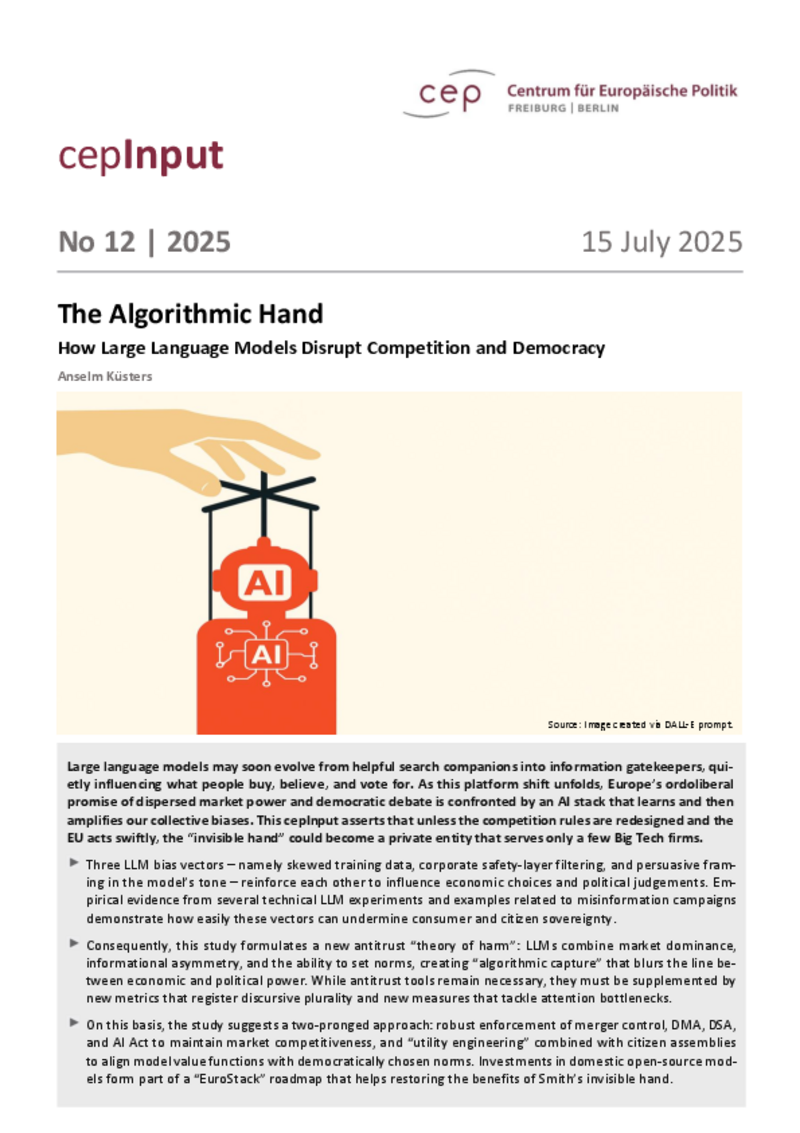
Digital Economy
The Algorithmic Hand: How Large Language Models Disrupt Competition and Democracy
cepInput
With the transition from web search to AI response, the diversity of information is being replaced by a single pre-filtered perspective that is algorithmically optimised and controlled by a few gatekeepers. What used to be ten links is now one sentence in a chat window. AI models do not simply reproduce external data. They structure it according to their own patterns, filtered through the distortions in their training data, technical specifications, and linguistic design.
‘If ChatGPT and its counterparts determine what information we see and how it sounds, then a handful of companies will control not only our purchasing decisions, but also our political convictions. This is concentrated power in a new form,’ warns cep digitalisation expert Anselm Küsters, who authored the study on the dangers of large language models (LLM).
The cep is calling on European policymakers to take more decisive action. Existing regulations such as the Digital Markets Act, the Digital Services Act, and the AI Act must be applied more consistently and supplemented with transparency requirements, independent audits, and democratic control mechanisms. By investing in EuroStack, an open and sovereign European AI ecosystem, Europe would ensure long-term digital sovereignty and fair information spaces for its markets and political discourse.
Download PDF
| The Algorithmic Hand (publ. 07.15.2025) | 638 KB | Download | |
 | |||



